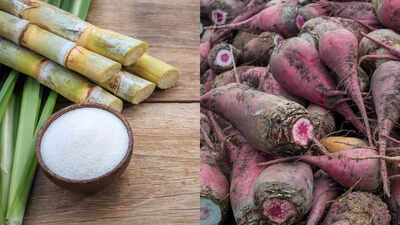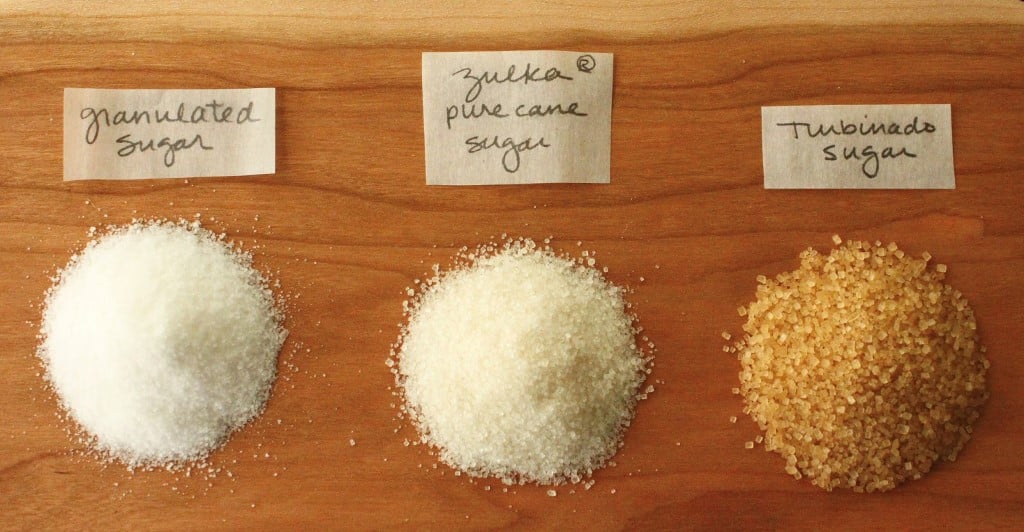Sugar beet vs sugar cane: Geographic spread explained
Wiki Article
The Great Debate: Sugar Beet Vs Sugar Cane - Which Is the Superior Choice for Sugar?
The dispute over sugar beet versus sugar cane as the favored sweetener involves a number of crucial factors. Each deals unique benefits and obstacles pertaining to manufacturing, flavor, and wellness ramifications. While sugar beet might appeal to those prioritizing sustainability, sugar cane has its own social and culinary relevance. As consumers come to be a lot more conscious of their options, the inquiry continues to be: which sweetener absolutely attracts attention in today's market?The Origins of Sugar Beet and Sugar Cane
Although sugar cane has actually been grown for countless years, mainly in tropical regions, sugar beet arised as a significant alternative in cooler environments throughout the 18th century. Sugar cane, belonging to Southeast Asia, was first trained around 8000 BCE and spread out internationally with trade and exploration. Its high sucrose content made it an important crop, leading to extensive haciendas in areas like the Caribbean and Brazil.On the other hand, sugar beet was first cultivated in the Mediterranean around the 18th century, especially gaining traction in Europe as a response to sugar cane lacks. The plant prospers in warm environments, making it ideal for regions with chillier weather. The discovery that sugar can be extracted from beet roots changed sugar production, specifically during the Napoleonic Battles when trade restrictions limited cane sugar gain access to. The rise of sugar beet cultivation marked a crucial moment in the history of sweeteners, providing a neighborhood source for lots of countries.
Production Procedures: From Field to Sugar
The manufacturing processes of sugar beet and sugar cane disclose considerable distinctions in cultivation strategies, harvesting approaches, and improvement stages. Comprehending these nuances is important for appreciating how each plant adds to the overall sugar market. This contrast highlights the special characteristics and difficulties connected with both resources of sweet taste.Cultivation Techniques Contrast
Growing strategies for sugar beet and sugar cane disclose distinctive approaches that influence their manufacturing procedures, from field preparation to last sugar removal. Sugar beet farming normally entails plowing and harrowing to produce a great seedbed, followed by seeding in rows to assist in growth. This crop gain from cooler climates and is usually grown in spring. On the other hand, sugar cane is usually grown in furrows with pre-sprouted cane items, calling for a warm, exotic climate for perfect development. Cane areas are commonly laid out to handle water successfully, provided its need for considerable watering. Both plants are taken care of with specific fertilization and pest control techniques customized to their growth atmospheres, affecting return high quality and efficiency in sugar removal.
Gathering Techniques Clarified
Effective gathering methods for sugar beet and sugar cane play a necessary function in guaranteeing maximum yield and quality of the last product. Sugar beet collecting typically uses mechanical root harvesters, which efficiently root out the beetroots from the dirt and separate them from the foliage. This approach lessens damages to the beetroots and minimizes labor expenses. In contrast, sugar cane harvesting may utilize either hand-operated labor or machinery, relying on the area and scale of production. Mechanical harvesters reduced the cane at the base and often remove the fallen leaves, optimizing the process for bigger fields. Both approaches call for careful timing to assure the plants are harvested at peak sweetness, affecting the top quality of the final sugar product.Improvement Process Distinctions
While both sugar beet and sugar cane go through extensive refinement procedures to transform their raw kinds right into usable sugar, the approaches employed differ significantly. Sugar beet improvement starts with cleaning and slicing the beets into slim cossettes, adhered to by diffusion, where warm water extracts sucrose. The resulting juice is then cleansed, concentrated, and crystallized. In comparison, sugar cane handling includes squashing the stalks to extract juice, which is then made clear using lime and warmth to get rid of contaminations. The cane juice is evaporated to create syrup prior to formation. Ultimately, while both procedures aim to create white sugar, the distinct methods highlight the one-of-a-kind attributes of each source and their ramifications for flavor and purity in the end product.Nutritional Profiles: What's in Your Sweetener?
The nutritional accounts of sugar beet and sugar cane existing unique distinctions worth analyzing. This contrast consists of elements such as caloric content, mineral and vitamin existence, and variations in glycemic index. Recognizing these aspects can offer insights right into just how each this hyperlink sweetener may impact general health and wellness.Calorie Content Contrast
Comprehending the caloric material of sugar beet and sugar cane is necessary for those mindful of their nutritional options. Both sugar primarily contain sucrose, adding a similar calorie worth. Typically, sugar beet has around 387 calories per 100 grams, while sugar cane has about 390 calories per the very same quantity. The small distinction in caloric content may not significantly influence most diet regimens; however, it is remarkable for those carefully checking their calorie consumption. Furthermore, both sugar resources supply power yet lack necessary nutrients, making them mainly sources of vacant calories. Individuals seeking healthier alternatives may desire to take right into account these factors when selecting in between sugar beet and sugar cane as their chosen sweetener.Mineral and Vitamin Material
Calorie material offers only a part of the image when reviewing sugar beet and sugar cane. Both resources of sugar differ markedly in their mineral and vitamin profiles. Sugar beetroots are extremely rich in necessary nutrients, including potassium, magnesium, and iron. They additionally consist of percentages of vitamins such as B6 and folate, contributing to their nutritional worth. On the other hand, sugar cane offers a various set of advantages, having calcium, phosphorus, and traces of B vitamins. While neither option is a considerable source of nutrients compared to whole foods, sugar beets may have a small edge because of their greater mineral content. Ultimately, customers looking for nutritional gain from sweeteners need to take into consideration these distinctions in accounts.Glycemic Index Distinctions
Glycemic index plays a necessary function in examining exactly how various sugar impact blood sugar level levels. Sugar beet and sugar cane exhibit notable distinctions in their glycemic reactions. Normally, sugar beet has a lower glycemic index contrasted to sugar cane, causing a slower and steadier surge in blood sugar levels after intake. This characteristic might make sugar beet a preferable option for people handling diabetes mellitus or those looking for to preserve secure energy degrees. In contrast, sugar cane often tends to trigger a more rapid spike in blood sugar, which might result in quicker energy crashes. Understanding these differences is considerable for customers intending to make informed dietary selections pertaining to sugar and their influence on total wellness.Environmental Effect: Sustainability Factors To Consider
While both sugar beet and sugar cane are vital sources of sugar, their environmental impacts and sustainability factors to consider differ significantly. Sugar beetroots, largely expanded in warm areas, usually call for much less water and can be grown in varied environments. They also gain from crop rotation practices, which improve dirt health and wellness and lower the demand for artificial plant foods. Extensive farming of sugar beets can lead to dirt deficiency and pesticide use.In comparison, sugar cane grows in exotic environments and frequently requires substantial water sources for irrigation (Sugar beet vs sugar cane). The monoculture nature of sugar cane farming can worsen soil erosion and biodiversity loss. Additionally, the burning of cane areas prior to harvest releases carbon emissions and adds to air pollution. Both crops face difficulties relevant to climate adjustment, however their differing growing practices profoundly influence their general sustainability profiles. The option between sugar beet and sugar cane includes weighing these environmental effects carefully.
Taste and Culinary Makes Use Of: Which Sweetener Reigns Supreme?
The selection between sugar beet and sugar cane extends beyond ecological factors to consider to incorporate preference and culinary applications. Sugar beet, commonly viewed as having a slightly different taste account, often tends to be much less pleasant than sugar cane. This refined distinction can influence its use in dishes, particularly in baked products where a neutral sweet taste is preferred.On the other hand, sugar cane is commemorated for its distinct, rich, and much more complex taste, making it a preferred selection for drinks and treats - Sugar beet vs sugar cane. Its natural molasses material can improve the depth of flavors in various recipes
In cooking, sugar cane's versatility radiates with in sauces, glazes, and confections, while sugar beet is typically found in refined foods and sugar like granulated sugar. Ultimately, the decision between the 2 sweeteners often rests on specific taste choices and particular culinary applications, with each offering special advantages in the cooking area.
Health And Wellness Effects: Sugar Beet Vs Sugar Cane
Both sugar beet and sugar cane have unique health implications that can influence customer options. Sugar beet vs sugar cane. Sugar beet is commonly pertained to for its greater fiber content, which can assist digestive wellness. click resources In addition, it contains certain anti-oxidants that may contribute to overall health. On the various other hand, sugar cane is abundant in nutrients such as calcium, potassium, and magnesium, providing some mineral advantagesBoth resources mainly are composed of sucrose, which can lead to comparable wellness issues when consumed exceedingly, such as weight problems, diabetes mellitus, and heart Continue condition. The handling techniques additionally differ; sugar beet is generally fine-tuned extra intensively, possibly resulting in a loss of certain nutrients. Customers worried concerning additives might favor sugar cane, as it usually undergoes much less handling. Inevitably, understanding these health and wellness effects can lead individuals toward making informed choices concerning their sugar selections.
Consumer Preferences: Fads and Insights
Customer choices for sugar have evolved considerably in the last few years, affected by health and wellness patterns, environmental issues, and dietary choices. Enhanced awareness of the adverse wellness results related to extreme sugar usage has led many customers to look for choices. This shift has actually triggered a growing interest in natural sugar, with sugar beet and sugar cane being at the leading edge of discussions.Study suggests that customers are significantly preferring sugar beet as a result of its viewed environmental advantages, as it is frequently expanded closer to refining plants, lowering transport discharges. Alternatively, sugar cane is typically connected with tropical regions and may lug understandings of sustainability challenges.

Regularly Asked Inquiries
Exactly How Do Sugar Beet and Sugar Cane Affect Blood Sugar Level Degrees?
Sugar beet and sugar cane both consist of sucrose, which can boost blood glucose degrees. The influence greatly depends on specific metabolism and usage amounts, but both sources add in a similar way to blood sugar responses for the most part.Which Sweetener Is Better for Cooking and Cooking?
When examining sweeteners for cooking and food preparation, one have to take into consideration structure, flavor, and dampness retention. Sugar beet and sugar cane both use unique top qualities, with sugar cane usually chosen for its richer flavor profile in culinary applications.Can Sugar Beet or Cane Be Utilized in Vegan Diets?
Both sugar beet and sugar cane can be utilized in vegan diet plans. They are plant-derived sweeteners, making them suitable for individuals looking for vegan-friendly alternatives without pet items, making certain moral options in their cooking methods.What Are the Historical Uses Sugar Beet and Cane?
Historically, sugar beet and cane offered as vital sources of sweetness, with cane cultivated in exotic areas and beet in temperate zones. Both have actually been indispensable to different societies, economic climates, and culinary customs throughout history.Exist Any Alternatives to Sugar Beet and Cane?
Alternatives to sugar beet and cane include agave nectar, honey, syrup, and artificial sugar like aspartame and sucralose. These replacements offer varying flavors and wellness benefits, attracting varied nutritional choices and constraints.Report this wiki page